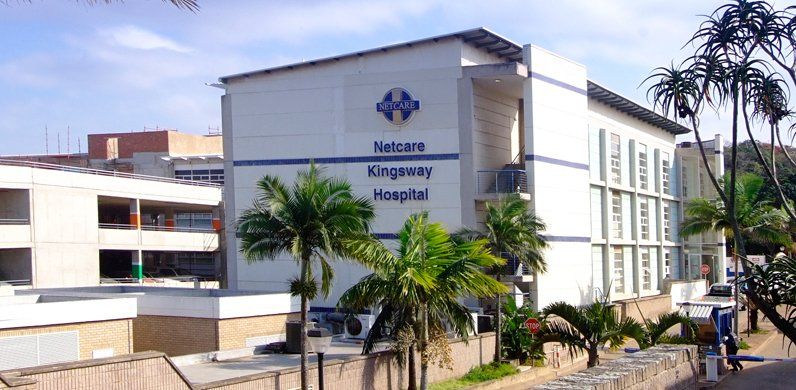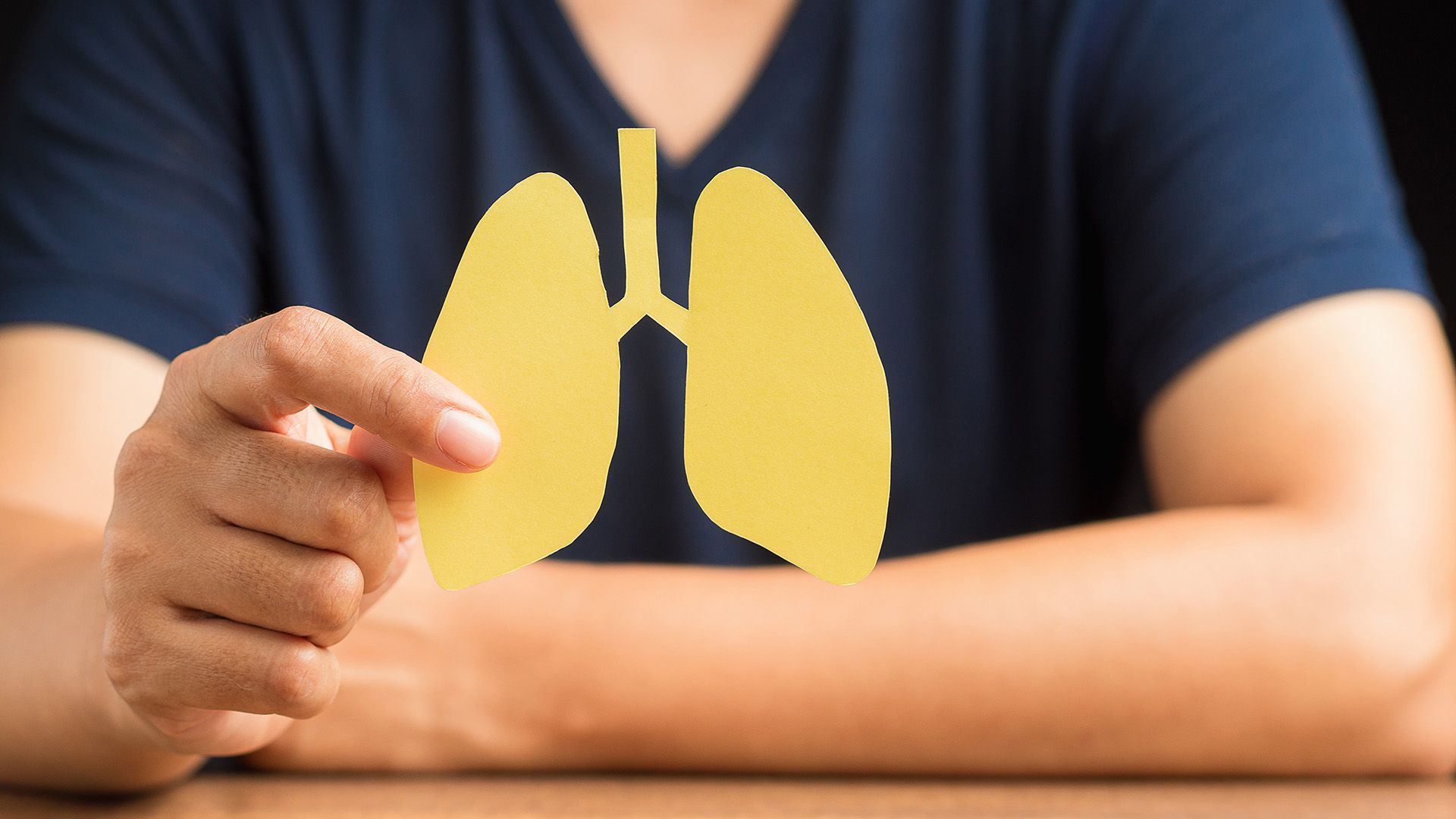Additional precautionary preventative measures implemented at hospital
Drickus Maartens • April 15, 2020
Photo source: www.netcarehospitals.co.za
Netcare Kingsway Hospital moves swiftly in the wake of COVID-19 infection
Netcare today confirmed that its KZN regional team and the hospital management at Netcare Kingsway Hospital have responded swiftly to managing the COVID-19 exposure at the hospital, and have temporarily closed the hospital for new admissions.
According to Craig Murphy, regional director of Netcare, the origin of the exposure has been traced to a patient who was admitted to hospital via the emergency department on 4 April 2020 with a suspected stroke. Upon admission, the patient was risk assessed and screened for COVID-19 symptoms and exposure as per the Netcare protocol, which is aligned to the NICD guidelines. The patient did not exhibit any signs of the virus and on questioning his family, no symptoms or exposure risks were reported.
“During his hospitalisation, the patient was visited by his general practitioner on the evening of 7 April who mentioned to the treating specialist that he had recently treated him for flu like symptom on 1 April. The treating specialist requested a COVID-19 test as a precautionary measure even though the patient was still asymptomatic. At the same time, the patient was placed in isolation as a person under investigation (PUI). The test results of the patient came back on 8 April confirming that the patient had a COVID-19 infection.
An abundance of caution to contain the spread of the infection
“In addition to closing the hospital for new admissions until further notice, we have taken several other measures” says Murphy.
“We embarked on an extensive programme of contact tracing so as to identify all nurses, doctors, paramedics, support staff and contract service providers in the hospital who may have had contact with the patient in question. Healthcare and other workers who have been exposed to the patient were asked to home-quarantine and self-monitor. Most of the identified contacts have been tested for COVID-19, the remainder of the exposed persons will be tested in the next few days. All potentially exposed patients have also been tested.”
“All of these individuals – those working in the hospital as well as patients – who have undergone COVID-19 laboratory testing are regarded as persons under investigation (PUIs) and have been placed in isolation to contain the possible spread of the virus. All of our staff, as well as our patients, have been offered counselling and this support will be ongoing.
“The emergency department was closed for outpatients as of 14 April and emergency medical service providers were notified to divert emergencies to other emergency departments.
“The hospital management also promptly communicated the exposure to the doctors practising at the hospital and requested that they cancel consultations and conduct telemedicine or telephonic consultations where possible, or defer their consultations to a later date, in order to restrict access to the hospital.
“Management have taken the decision to close the radiology department at the hospital for any investigations of persons who are not admitted to the hospital until further notice.
“Netcare has employed the services of two independent infectious disease specialists and epidemiologists to assist in investigating this incident at Netcare Kingsway Hospital.
“A systematic deep cleaning and decontamination process was started immediately, including the deployment of an ultraviolet disinfecting robot which has proved highly effective in destroying viruses, bacteria and fungal spores in healthcare facilities. This process is expected to continue over the next days.
“We understand that these precautionary measures will cause concern and inconvenience to the community, especially those with family members or friends being cared for in the hospital, as well as our staff members, doctors and other persons working at our hospital and their families. However, we believe these measures are absolutely necessary to safeguard all patients and persons working at Netcare Kingsway Hospital. The management team are contacting the family members of patients who have been admitted to Kingsway to explain the situation to them.
COVID-19 cases at the hospital
“The National Department of Health is the authority that officially announces information on COVID-19 cases, and we are thus not in a position to provide specific information on the exposure at the hospital. We are working closely with the KZN Department of Health (KZN DoH) with regard to the situation at Netcare Kingsway Hospital. We will provide more specific details after meeting with the KZN DoH”, confirmed Murphy.
“All persons whose test results are still awaited are regarded as PUIs and are either in self-isolation or are being accommodated in isolation by Netcare until such time as their test results are known, after which a decision will be made regarding staff members as to their return to work or continued self-isolation.
“PUIs and confirmed COVID-19 patients in Netcare hospitals are separately isolated and cared for either in isolation rooms or isolation cubicles, with doctors and nurses wearing appropriate personal protective equipment specific to the risk associated with each individual each case, and following Netcare’s protocols to prevent the spread of the infection to other patients and others working in the hospital.
Challenges of COVID-19
Commenting on the development, Dr Anchen Laubscher, group medical director of Netcare said that two of the greatest challenges associated with COVID-19 are that those infected do not always show or have any of the symptoms, and the fact that the virus is highly infectious, notwithstanding the absence of any symptoms.
“Even in the presence of extensive and effective infection prevention measures, such as those in place within Netcare hospitals, any workplace or gathering of people poses a potential risk for infection. Unfortunately, it has been shown that COVID-19 can be transmitted by carriers before they show symptoms that can be screened for, and where one person is contagious, the virus can very quickly spread to others.
“For this reason, Netcare took the decision a number of weeks ago of suspending visiting and public entry to its hospitals except in specific exceptional circumstances and closed its in-hospital pharmacies’ retail services to the public as well as its coffee shops. Daily screening of all persons entering our premises is also continuing, and where indicated, testing is then done,” notes Dr Laubscher.
No cost spared to keep patients and healthcare workers safe
According to Dr Laubscher, Netcare is sparing no effort or cost to keep every person in its care, as well as staff and doctors, as safe as possible.
“Netcare has already spent R150 million to enhance the readiness of its ICU and high care facilities, including purchasing additional ventilators, and we are also deploying more ultraviolet disinfection robots and specialised air filters to ensure appropriate disinfection measures,” she notes.
She adds that Netcare has so far also spent R300 million on additional, appropriate personal protective equipment (PPE) to supplement its stocks for staff and healthcare colleagues to ensure their safety while they work in the front line combatting the pandemic.
“Staff members and doctors at Kingsway Hospital, and those at all other Netcare facilities, have all been provided with appropriate PPE on an ongoing basis. Our PPE policy includes a directive on the wearing of masks during the COVID-19 pandemic which is, in fact, more conservative in that it provides greater protection than the current recommendations and guidelines of two highly respected health organisations, namely the World Health Organization (WHO) and the National Institute for Communicable Diseases (NICD).
“We wish to reiterate again that no Netcare facility has ever expected of a staff member to work without appropriate PPE as that would be contrary to our values. Importantly, we have re-trained over 20 518 healthcare workers, other staff members and doctors on the appropriate and correct use of PPE, and compliance in this regard is being closely and continuously monitored,” concludes Dr Laubscher.













